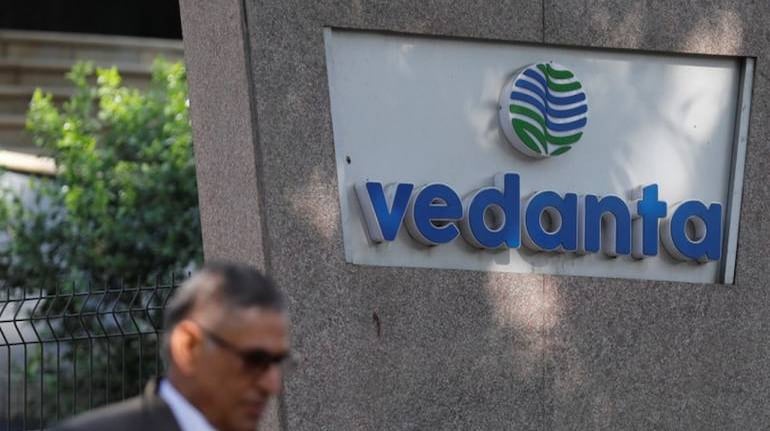
In a sudden move that surprised market participants, metals and mining baron Anil Agarwal has announced a proposal to buy out minority, non-promoter shareholders of his Indian unit Vedanta Ltd, delist the firm from the domestic stock exchanges and take it private. This is not the first time that Agarwal has flirted with the delisting route. In 2018, he successfully managed to delist Vedanta Resources, the parent company of Vedanta Ltd, from the London Stock Exchange.
Let us break down what the London-based Marwari billionaire is attempting back home during a volatile financial and commodities market.
BACK TO THE BASICS
Delisting a company's share means its permanent removal from the stock exchange platform. Simply put, post delisting, the share can no longer be traded on the exchanges. Delisting of shares fall in two categories : voluntary or involuntary. Involuntary delisting happens when a company fails to adhere to regulatory norms, slips below minimum financial parameters or goes bankrupt and the authorities can step in overnight.
Vedanta Ltd is an example of voluntary delisting. The promoter group holds 50.14 percent stake in the firm and is planning to buy out 48.94 percent non-promoter shares, with the market capitalisation based on its May 11 closing price pegged at Rs 33,194 crore. The London delisting of its parent was mired in controversy, and concluded amidst an atmosphere of lawsuits on environmental issues and protests alleging violation of human rights, which the firm denied. Two past examples of voluntary delisting include software firm Polaris Consulting in 2018 and Ruia family promoted Essar Oil in 2018.
THE PROCESS OF VOLUNTARY DELISTING
In instances of voluntary delisting, a firm removes shares from the exchange platform on its own, and makes payments to existing minority shareholders (usually at a premium to the current share price) to return the shares they hold. The delisting is considered successful only if the shareholding of the acquirer and the shares offered by the public shareholders together make up 90 percent of the company’s entire share capital. Voluntary delisting doesn't happen suddenly and investors have sufficient time to sell their shares and exit. For instance, the Essar Oil delisting process , first mooted in 2014, took 4 years to conclude amidst regulatory hurdles and opposition from shareholder advisory firms.
CHOOSING A PRICE THAT MATTERS!
In the case of Vedanta Ltd,the promoter Vedanta Ltd has proposed an "indicative offer price" or floor price of Rs 87.5 a share, which represents a 9.9 percent premium over the closing market price of Rs 79.6 a share as on Monday. But this is not the final offer price for the delisting.
The final offer price is determined by appointing a merchant banker who carries out "reverse book building" — a mechanism via which a firm buys back shares from the public. Reverse book building is also a price discovery method, in which bids are taken from current minority shareholders and the final price (which normally exceeds the market price) is fixed based on the nature of the bids.
When the promoters of Vedanta proposed the indicative offer price for Vedanta Ltd, it was lower than the current market price (at the time of announcement). In contrast, Vedanta Resources was taken private on the London Stock Exchange at a 27 percent premium to the prior close. Also in the case of Polaris, the indicative price was 60 percent above the floor price and the discovered price was 2x the floor price. Not surprisingly, long-term investors of Vedanta would be hoping for a sweetener in terms of pricing!
VEDANTA DELISTING: WHY NOW?
"Corporate simplification " is the trigger behind the delisting move, says the firm. A closer look at the share price movement indicates it is indeed an opportune time for the promoter group to lap up shares. The share price has nearly halved from its 52-week highs and has plunged from Rs 150 levels to the current range in the last six months.
The latest move by Anil Agarwal is the fourth in a series of steps following the "corporate simplification" philosophy. The merger of Sterlite with Sesa Goa to form Sesa-Sterlite (subsequently renamed Vedanta Limited) in 2012, the merger of Cairn India with Vedanta Limited in 2016, and the delisting of Vedanta Resources Pie (subsequently renamed Vedanta Resources Ltd) in 2018 were the earlier ones.
The delisting of Vedanta Ltd will provide the group with enhanced operational and financial flexibility in a capital intensive business and is expected to support an accelerated debt reduction programme in the medium term. Not to mention, no scrutiny by market regulator Sebi and lesser disclosures. Vedanta Resources (including Vedanta Ltd) has a $1.9 billion debt repayment coming up in FY21 along with regular interest payment and therefore, the group's strategy to meet these obligations and fund the delisting will be closely watched by market participants. After all, the external environment is riddled with uncertainty. There has been a sharp correction in commodity prices as demand has been battered following the global outbreak of COVID-19.
TAKING VEDANTA PRIVATE: WHAT NEXT?
The board of directors of Vedanta is scheduled to meet on May 18, 2020 and either approve or reject the delisting proposal after taking into account various factors, including the due diligence report submitted by the merchant bankers. Next, the company will require approvals of minority, public shareholders by way of a special resolution adopted through postal ballot. This would require at least two times votes in favor of the delisting proposal. Meanwhile, the management will be keen to whip up the all-important secret sauce for this deal - reaching a middle ground between their offer and shareholder expectations!
No comments:
Post a Comment